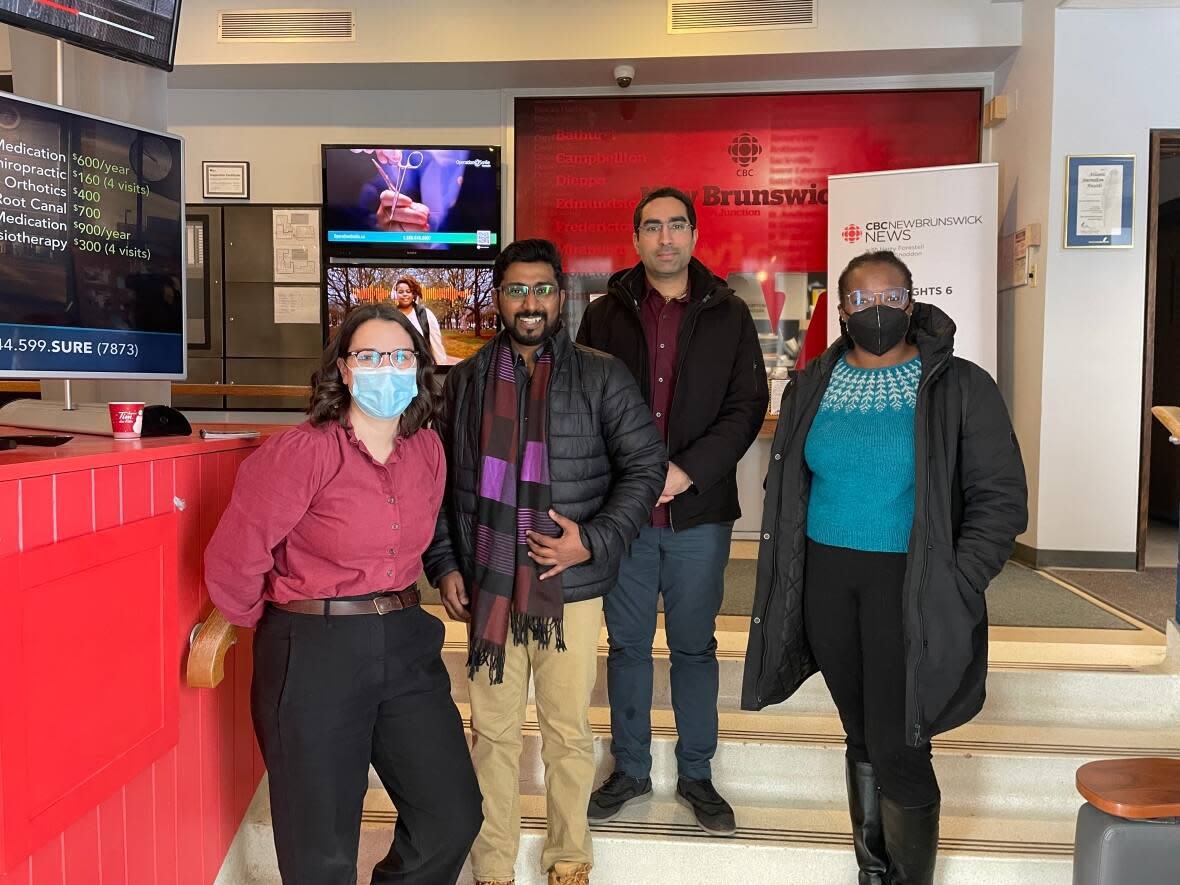N.B.'s rejection of non-Christian prayers sends 'damaging message' to newcomers

Symone Jennings moved to Canada from Trinidad to attend the University of New Brunswick 10 years ago. After graduation, she chose to stay and start her own knitwear company.
When she read about the legislature rejecting a request for a one-time reading of a Hindu prayer, she said she felt upset and unwelcome.
"The fact that it wasn't even up for discussion I think sends a really damaging message to the people who have decided to make New Brunswick their home," she said.
Earlier this month, Rajan Zed, who has delivered a Hindu prayer at state assemblies and city councils around the United States, made an offer to deliver the prayer to the N.B. legislature. Zed is president of the Universal Society of Hinduism and lives in Nevada.

Every sitting of the legislature currently starts with a Christian prayer.
Officials denied the request, and told Zed "the Assembly does not intend to deviate from this practice."
During a panel discussion with Information Morning Fredericton, Jennings and two other former newcomers said the government's lack of openness has made them question how welcome they are and how reflected they can be.
Jennings said the prayer was a missed opportunity to show that members of government are open to representing the people they want to attract to the province.

"It's great to say we want people to move here. So what do you really want them here for? Is it just so that they, you know, add to that tax base?" she said.
"Or is it that you're really open to the diversity of thought, the diversity of education, the ability for people to really feel like they are making a difference when they move here.
"Because we're not trying to change things, we're trying to help enhance it."
The government's population growth strategy includes a major focus on increasing immigration and attracting newcomers. About 85 per cent of the almost 8,000 new residents between July and October were international immigrants, including students and permanent residents.
Kanwal Chadha has driven on the right-hand side of the road his whole life. When he moved to Canada from India, he learned to drive on the left. The mechanical engineering instructor, who is Hindu, also learned about Easter, Thanksgiving and Halloween, because it's important to him to respect the culture of his new home. He said this effort shouldn't be a one-way street.

"This is what is required to live in a united place," he said.
"If we can add some things [to] the tradition, it would make people from different cultures … be more happy, and they will be more welcomed."
Kaushalya Rathnayake is doing his PhD in biology at UNB. The Sri Lankan-born resident said deviating from tradition is a natural part of growing as a community.
"I know, as an evolution biologist, that the society is evolving day by day," he said. "As an evolving society, we have to have modifications, we have to have a flexibility, too, and we have to have open hands to absorb new things."

Jennings said she's seen a lot of changes in attitudes toward newcomers in the province in the last decade. People are more accepting and more open to hearing new ideas. She doesn't understand why the government has chosen not to follow that trend
"I felt like they didn't really give an actual explanation as opposed to 'It's tradition. This is the way that we've always done things,'" Jennings said.
Most newcomers, about 83 per cent, have seen first-hand racism in the province, according to a New Brunswick Multicultural Council survey from 2020.
Jennings said denying any prayers other than Christian raises doubts about how quickly change can come.
"It's just kind of left with 'OK, so you would like me here, but what for?' And when you find yourself having to ask that question, you kind of start to wonder, well, is this the best place for me?
"And I hate having to ask myself that question because I love New Brunswick."


